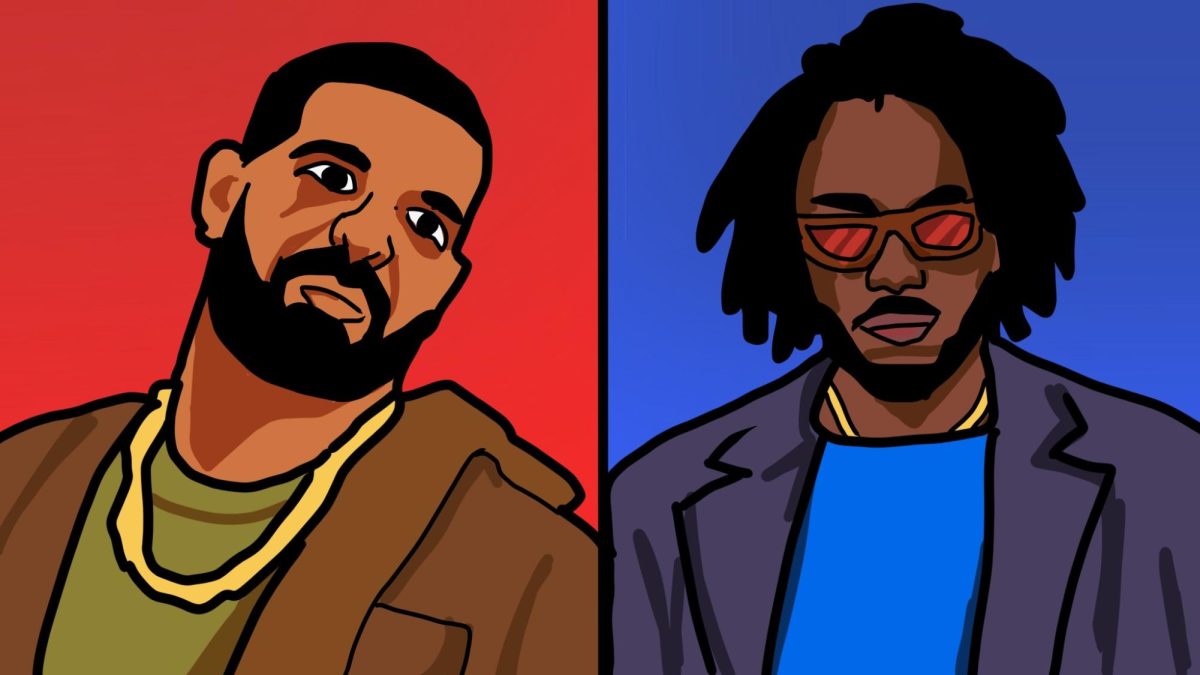Juvenile Delinquents: When Does it Stop Being “Lit”?
Daymara Fernandez, Johua Silva
A juvenile delinquent caught by the police breaking and entering into a home, detained and handcuffed.
Jan 18, 2018
Our legal system is one of the prideful achievements of the United States Constitution. Lawyers, judges, protesters and even the government, to some extent, are slowly trying to shape our crooked system to a fair and justice-servicing branch that is meant to defend the innocent and punish the guilty. Nonetheless, when they reach controversial issues like juvenile delinquency, everything becomes more complicated. Many question whether the government should sentence a minor to death or if they should trial teens with leniency. Of course, the truth is that it all depends on the situation, but teens who commit a felony should be tried as adults.
Under the law, sentencing to the death penalty is considered cruel and unusual punishment to any delinquent under the age of twenty-one, which is protected by the eighth amendment under the Bill of Rights. However, it has always been arguable whether kids should be sentenced the death penalty as well. In fact, juvenile criminals are not completely protected under this right. Depending on the state and depending on the required unanimous jury’s approval and/or recommendation, a judge in Florida could impose a death sentence for major crimes: first-degree murder, capital drug trafficking and capital sexual battery, which also includes anything that broadly falls into the crime of sexual violations. Teens are protected under the Supreme Court capital sentencing statute that took place in March of 2005, Roper v. Simmons. In this country, however, there must be an exception under aggravating circumstances. Even though it might be considered a cruel and unusual punishment, the court still admits that if under an important circumstance a teen must be sentenced to death, there is still that option. While it may not be the answer for every single case, there is still the possibility that someone younger than 21 will be sent to death row, which shows how the law does not remove the death penalty from the table despite the protections that have been set forward.
“I do not believe that juveniles should be tried as adults. They do not have the same mental capacity to be held to the same standard and I believe they should be given the opportunity for rehabilitation or to rectify what they have done. I strongly believe that no person, juvenile or adult should be sentenced to the death penalty. No matter the crime, no person has the right to end another person’s life,” counselor Michaelyn M. Radcliff said.
Even if juvenile residence per 100,000 people has been decreasing since 2006, there are still roughly seventy-five million juveniles in the United States. Only 226 juvenile death sentences have been imposed since 1973. It is extremely unlikely that a minor is to be imposed with a death penalty under the law. As a matter of fact, only seven countries allow the law system to execute juveniles: China, Democratic Republic of Congo, Iran, Pakistan, Yemen, Nigeria, Saudi Arabia and the United States. Of course, from state to state, different extremists have to decipher what is right or wrong, and while some might consider it terrible, it is something that should be practiced. Even if they are under eighteen or twenty-one, depending on the state, teens are perfectly able to understand consequences to their actions. If they do not know that their mistakes can have serious repercussions, then who is going to show them that there are certain punishments for the crimes they have committed? It is perfectly understandable to help young juveniles accused of stealing with rehabilitation programs, but if a teen commits a first-degree murder, unless they are in some grave way mentally insane or incapacitated, the death penalty should be an option. Would that not be more humane over having them wallow in prison, living in harsh conditions? In some way or another, there needs to be an appropriate system of punishment. Of course, every case should be dealt with separately and with delicateness while weighing out the information for each trial.

I think it all depends on the type of crime they committed. If it is something [small], then I think they should rightfully be tried as a juvenile, but if it is something serious then they should be tried as an adult.
— freshman Alma Martinez
With this serious topic comes many contrasting viewpoints. For those who claim that the death sentence should not be allowed for teens, they use research about the brains of teenagers to support their claim. The information found by various researchers claim that the brain does not stop developing until what is considered adulthood in the United States, which is the age of 21. This is why the drinking age was raised to age 21 instead of it being 18. In the trial Commonwealth vs Bredhold, it was concluded that minors have not fully developed their brains, which causes them to be more impulsive, psychologically immature and lack a more reasonable moral judgment. This is supposed to justify an impulsive action of a minor infraction or misdemeanor, but it would not be really up for consideration when talking about the death penalty since a crime that would require such a heavy punishment cannot be simply classified as an immoral impulse. Either way, the impulse has nothing to do with choosing between right or wrong. In fact, neurology regularly does not even associate itself with trials.
Additionally, it is very unlikely that juveniles would change their ways in a prison. While rehabilitation in prison is very common for juveniles, many adults have a hard time recovering; therefore, it can be said that rehabilitation is not always the way for both adults and juveniles. It is true that criminals should not be treated as second-class citizens, but if someone commits a federal crime and they were conscious about what they were doing, the age should not matter and they should be tried as an adult. It is a simple excuse to say that teenagers should not be sentenced the death penalty because their brains are not fully developed. By denying punishment, teenagers will have the right to act more impulsively and ignore the national concept that killing is bad under the rule of law.
“Well, I think it [how juvenile delinquents are tried] should be depending on the crime. If it is murder, they should be trialed under the same conditions as an adult, but if it is a minimal felony, they should not. I believe there should not be a death penalty at all… except under murder,” freshman Yasel Rodriguez said.
Under no circumstances should people be sent in line for execution without a strong reason, much less a juvenile delinquent that has a whole life to live. However, at a certain point, we must admit that there are established moralities in our communities that have to be followed so social order can continue. Social order is difficult to achieve if youth criminals are left completely off the hook or if criminals keep roaming through the streets freely. Punishment does not create social barriers dividing people from good or bad. Prejudice does that. Punishment just provides repercussions for actions, and once that punishment is completed, no one should be accused of another crime without proof. Whether a sixteen-year-old is shooting up a school or a fifty-year-old is stealing a diamond ring from a jewelry shop, there needs to be punishments according to the crime.

























copyediting • May 15, 2018 at 5:01 pm
I strongly believe that no person, juvenile or adult should be sentenced to the death penalty. http://royalediting.com/check-our-copyediting-service-and-see-the-result good to have the article like that.